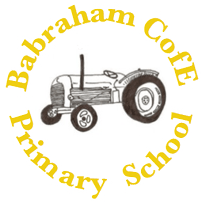
English: Introduction & Assessment
Welcome to Our English Page!
Introduction
At Babraham, we believe that all children, from Reception to Year 6, are entitled to an ambitious, knowledge-rich English curriculum that ensures they will become fluent readers and writers who are able to confidently access the demands of the secondary school curriculum. Our English curriculum is driven by a canon of culturally important, high-quality texts. This is the stimulus for all our reading and writing. We have chosen texts which lead to the development of the personal and cultural capital of children at Babraham. We believe that in order for our children to leave Babraham as successful learners, they need to have knowledge of a range of these texts.
Assessment
Formative (at the point of teaching) assessment takes place in every lesson through regular questioning of the children to check their understanding. This includes spelling tests from the statutory word lists and key vocabulary, as well as factual information of the context and knowledge of grammatical functions. Previous learning is revisited to embed the knowledge within the long-term memory.
The children have termly phonics assessments (see phonics approach for details) to check for decoding ability and fluency testing using DIBELS. The research evidence indicates that generic reading comprehension tests assess children’s vocabulary and background knowledge more than their reading ability. We therefore do not use generic reading comprehension tests. Reading fluency tests are a better indicator of children’s reading progress. The DIBELS assessments identify whether children are reading at an age-appropriate level and give detailed diagnostic information on key aspects of reading, so that teachers know exactly where and how to give additional support. However, as children prepare to take statutory assessments in Year 2 and Year 6 (SATs), they are given the opportunity to experience appropriate reading tests, enabling them to become confident and at ease with this style of reading assessment.
We assess pupils’ writing termly against our KLI (key learning indicators), and moderate internally. Additionally, every year group participates in a system called Assessing Primary Writing once a year, where children’s writing is judged anonymously and ranked with other pupils nationally. This supports our professional judgements and shows us how our children’s writing compares across the country.
